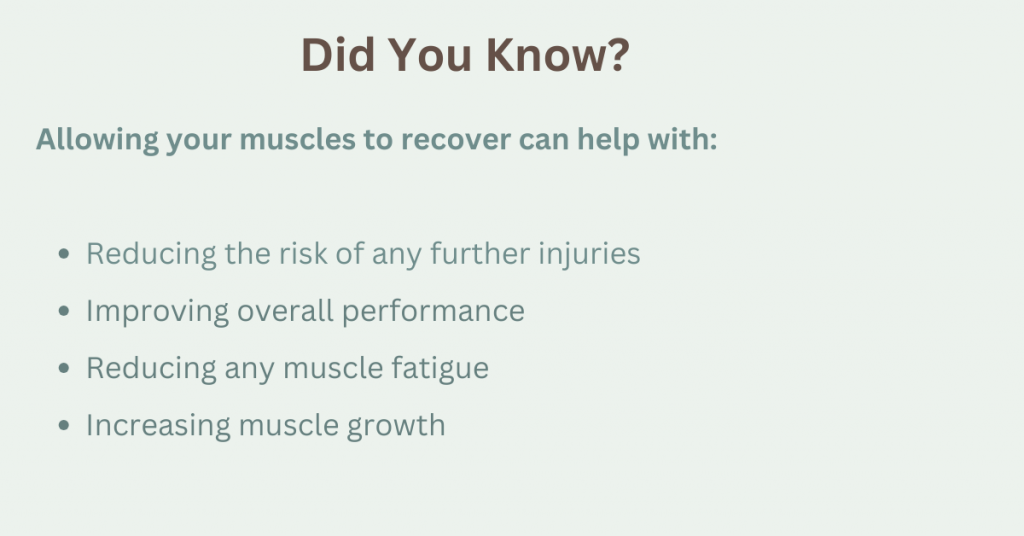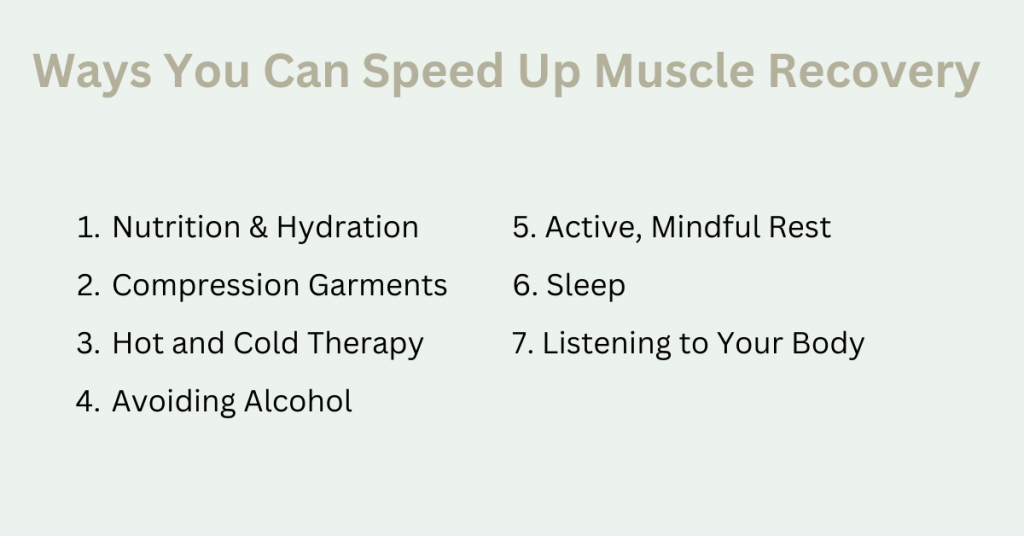Speeding up muscle recovery isn’t only important for getting back into the gym or out onto the playing field faster, it’s also essential for mitigating injury and maintaining overall wellbeing.
But how long does it take for muscles to completely recover and what can you do to expedite the process for better performance and injury prevention?
Whether you’re a high-performance athlete or a fitness enthusiast, knowing how long it takes your muscles to recover from intense and/or extended periods of activity isn’t just about getting ready for the next workout session or match — it’s also about staying free of injuries and niggles that can leave you on the sideline.
Awareness of the importance of exercise in physical and even mental wellness is on the rise across Australia, and more Aussies than before are making conscious efforts to participate in at least one type of sport or physical activity regularly.
However, many who work out still don’t know the importance of post-workout muscle recovery, as well as how long it actually takes for strained muscles to recover. In this article, we’ll put to rest the matter of how long you should let your muscles rest after a workout, the consequences of not letting them recover, and how you can speed up their recovery.
Table of Contents
- How long does muscle recovery take?
- The value of muscle recovery for performance
- 7 Proven Ways to Speed up Muscle Recovery
- Nutrition & Hydration
- Compression Garments
- Hot & Cold Therapy
- Avoid Alcohol
- Active, Mindful Rest
- Sleep
- Listen to your body
How long does muscle recovery take?
The recovery period for your muscles mainly depends on the level of intensity of your workout. The more challenging your workout is, the longer it will take for your muscles to recover from it.
On average, muscles can recover within 24 hours from a light workout, while workouts that really push your limits can take from 2-3 days to even a week.
These estimated time periods also take into account sufficient resting time for your muscles, meaning any additional strain you place on your muscles will only delay their recovery.

The value of muscle recovery for performance
Muscles have a high capacity for stress since we use them in every single movement that we make. That said, not taking muscle recovery can have some serious consequences on your body.
Most workouts and sports place great stress on your muscles, creating tiny little tears in them that can result in growth and increased strength when they are healed. However, if you don’t give your muscles enough time to heal before going at it again on your workouts, you risk making these tears worse before your body can repair them, potentially causing your muscles to become swollen, inflamed, or, in some cases, even severely damaged.
Aside from the pain and discomfort that accompanies damaged muscles, weakened muscles can also lead to the development of musculoskeletal issues that may require intensive (and costly) treatment.
7 Proven Ways to Speed up Muscle Recovery Post Workout
Your body is great at repairing itself — your strained muscles will naturally recover by themselves, given enough time and rest. In some situations, you might find yourself in need of ways to boost your recovery, perhaps in preparation for another sports event or for the sake of comfort. Here are some proven tips that you can make use of in your post-workout recovery phase to speed up your muscle recovery.
1. Nutrition & Hydration
Eating a healthy diet and drinking plenty of fluids are essential for post-workout muscle recovery. During your workout, your body will have spent lots of resources to fuel your activity, and eating food and drinking fluids will help to provide the building blocks it needs to replenish its stores and repair and rebuild muscle tissue.
Try to eat a carbohydrate and protein-rich meal within 30 minutes of finishing your workout. Incorporate sources of protein such as meat, eggs, dairy products, or nuts, and carbohydrates like fruits, starchy vegetables, or whole grains to give your body what it needs to repair your muscles. Also, remember to drink plenty of fluids, such as water, sports drinks, or coconut water, to rehydrate your body and replace the electrolytes you lost through sweat.
2. Compression Garments
If you aren’t familiar with compression garments, they are a type of clothing that applies pressure to parts of your body when worn. This pressure can help to improve circulation, reduce swelling, and support muscles.
Compression garments have also been shown to reduce muscle soreness and fatigue after workouts. So, instead of wearing compression garments only during workouts, put them around your recovering muscles during the recovery period to help aid in their repair and provide some additional support. Just be sure not to wear them beyond 8 hours at a time to allow your muscles to release their tension.

3. Hot and cold therapy
Hot and cold therapy can be used to reduce pain and inflammation after a workout. Beyond applying heat or ice packs to your muscles, a comprehensive contrast therapy session can do wonders for your muscle recovery. Switching between a hot and cold environment encourages your body’s blood circulation and reduces inflammation in your sore muscles.
A private hot and cold therapy session (or one with your friends) is an excellent way to give your body the space to relax and recuperate, especially after a tough workout. At Rimba Sweat, you can book a session at any of our state-of-the-art infrared saunas and ice baths all across Sydney to experience better and faster recovery for your muscles.
4. Avoid Alcohol
Alcohol can dehydrate your body and interfere with muscle recovery, so it’s best to avoid drinking any alcohol for at least 24 hours after a workout.
5. Active, Mindful Rest
Make use of low-intensity physical activity and relaxation techniques such as yoga, meditation, or mild stretching to soothe your muscles. It may sound counter-intuitive, but research has shown that a little physical activity can help your muscles recover faster. Remember, the aim of these activities is ultimately to relax your body, so don’t push yourself too hard.
6. Sleep
Proper sleep (at least 7-8 hours of uninterrupted rest) is also important for muscle recovery. When you sleep, you don’t use your muscles as much, which allows your body to repair and rebuild muscle tissue in that time.
7. Listen to your body
When it comes to muscle recovery, your body knows best. Everyone’s body has different limits, and it’s essential to listen to your body and rest when you need to. If you are feeling pain or fatigue, slow down or stop your activities and give your muscles time to recover.
Final Thoughts
Remember that muscle recovery takes time — even with these tips to speed the process up.
Having seen all kinds of sports and fitness enthusiasts walk through our doors and into our saunas, we know that the best way to help your muscles recover faster is to give yourself some self-care. Take care of your body while it does the work, and you’ll be back in tip-top shape in no time.
At Rimba Sweat, we believe in the power of Infrared Saunas – especially when it comes to aiding in muscle recovery. Nestled in the heart of the Northern Beaches, we look forward to welcoming you through our doors as you unwind and soothe your sore muscles. To book an infrared sauna session, contact us here or give us a call on (02) 8959 0672.


